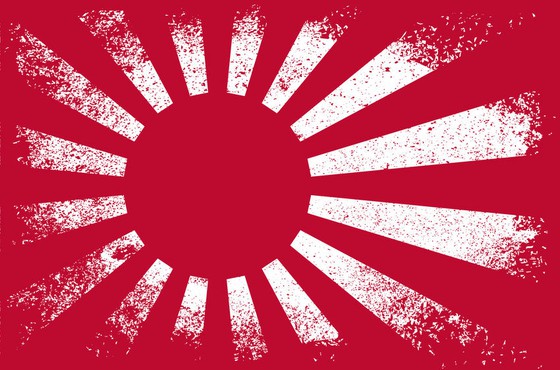 |
Some South Koreans see the Rising Sun Flag as a symbol of Japanese imperialism, and some South Koreans argue that it is a "clear political symbol that reminds us of the scars of history in South Korea, which suffered Japanese aggression." As a result, the "rising sun flag affair" has occurred many times.
With the Tokyo Olympics held last summer ahead of us, in 2019 the Culture, Sports and Tourism Committee of the South Korean National Assembly announced that the International Olympic Committee (adopted a resolution calling on the IOC) and the Games Organizing Committee. In the same year, when the IOC received a letter from the South Korean government requesting a ban on bringing the Rising Sun flag into the country, the IOC replied, "If there is a problem at the Olympics, we will consider how to deal with it on a case-by-case basis." In South Korea, the use of the Rising Sun flag was effectively approved, and there was a backlash. The Organizing Committee of the Games also argued, "The Rising Sun flag design is widely used in Japan, and it does not constitute a political statement or discrimination, so it does not fall under the ban on bringing it in." After that, it was decided that the Tokyo Olympics would be held without spectators, and one of the articles in the Korean media reporting on this decision at the time commented, "I am fortunate that I no longer see the rising sun flag (at the stadium)." was also seen.
Recently, the decision to participate in the South Korean military's participation in the international naval review held on the 6th of this month to commemorate the 70th anniversary of the establishment of the Japan Maritime Self-Defense Force took time due to issues involving the rising sun flag. In January this year, the MSDF sent invitations to foreign countries, including South Korea, for a fleet review. However, the Korean side did not immediately answer whether or not to participate, as the Self-Defense Forces flag with the design of the rising sun would be hoisted at the naval review. In the end, the South Korean side was unable to come to a conclusion by the deadline of the 12th of last month, and the South Korean media reported at the time, "Considering the public sentiment toward the Maritime Self-Defense Force flag, the South Korean military authorities cannot easily decide to participate in the naval review." '' (Edaily). After that, the South Korean Ministry of National Defense decided to dispatch South Korean naval vessels. "Amid a series of provocations from North Korea, we gave top priority to security implications," he said. The South Korean Navy's state-of-the-art munitions support ship Soyang (11,000-ton class) participated in the event.
However, the rising sun flag affair in South Korea has escalated in recent years. It can also raise issues.
And on the 27th, the rising sun flag affair broke out again at the World Cup against Japan. Korean media outlet Edaily said, "During the match, an unsightly scene occurred in the stands," adding, "Some Japanese soccer fans entered the stadium carrying the rising sun flag, which symbolizes militarism. One fan cheered by waving the Rising Sun flag, while other fans hung the Rising Sun flag on the railings of the stadium, etc. Fortunately, safety personnel at the stadium were immediately dispatched to remove the flag. The Rising Sun flag disappeared from the stadium thanks to the quick action of the officials involved in the tournament. The Chosun Ilbo reported with photos of the removal.
Regarding this incident, Professor Seo Kyung-deok of Sungshin Women's University in South Korea, who is known in Japan as an anti-Japanese activist, posted on social media, "(FIFA's response) was a very appropriate measure. Thanks to the Korean netizens who made a video about the issue of the Rising Sun flag from the Cup and raised the issue and protested to FIFA, we were able to achieve this result."
On the other hand, it was reported that the Korean national flag, Taegeukgi, was waved at the venue of the match against Germany on the 23rd of last month when Japan scored a dramatic victory in this tournament. It is On the South Korean Internet, comments such as "A person who is not Korean may have waved a different country's flag" have also been raised.
2022/12/01 12:55 KST


